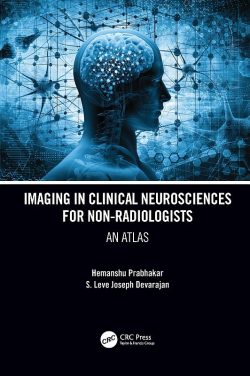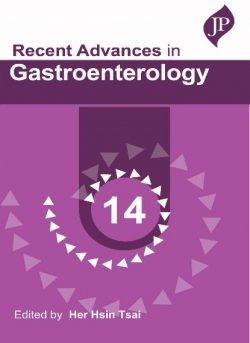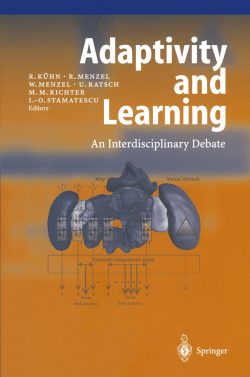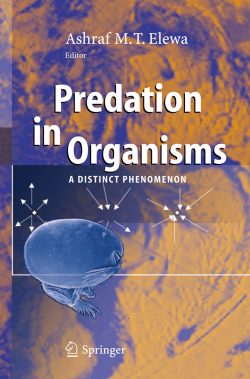Immunosenescence is an imprecise term used to describe deleterious age-associated changes to immune parameters observed in all mammals studied so far. It represents a rapidly progressing science in the aging field, with a vertiginous volume of new data, knowledge and concepts concerning these changes. We are poised to be in a position to translate these accumulated data into the clinical setting via better understanding of the contribution of immunosenescence to age-associated pathologies, and their prevention by appropriate interventions. This authoritative handbook seeks to encompass the current state of our knowledge on the multitude of those changes to immunity related to aging, with contributions from experts in the research and clinical areas. This book therefore considers methods and models for studying immunosenescence; cellular immunosenescence of T cells, B cells, neutrophils, antigen presenting cells, NK, NKT and stem cells; genetics; mechanisms including receptors and signal transduction; mitochondria; proteasome; cytokines; neuro-endocrine-immune networks; inflammation; thymus; clinical relevance in disease states including infections, autoimmunity, cancer, metabolic syndrome, neurodegenerative diseases, frailty and osteoporosis; modulation by nutrition, lipids, vaccination and the question “can interventions to influence immunosenescence be realistically proposed based on our current state of knowledge?”. Methods and Models for Studying Immunosenescence.- Methods for studying human immunosenescence in tissues other than blood.- Mechanisms – Receptors and Signal Transduction.- Clinical Relevance in Disease States – Infection.- Modulation.- Nutrition
Prof. Tamas Fulop, MD, PhD, is Professor of Medicine and Geriatrics, and Senior Researcher at the Research Center on Aging, University of Sherbrooke, Québec, Canada. He was the deputy director of the Research Center on Aging and member of the Graduate Immunology Programme for 20 years. He has directed the Biology Research Programme of the Research Center on Aging for more than 10 years. He obtained his MD degree at Geneva University. He received his PhD in Biochemistry and Immunology from the Hungarian Academy of Sciences and was a post-doctoral fellow at University Paris XII in Biochemistry. Dr. Fulop’s NSERC and CIHR funded research since 1994 is focused on immune response changes in T cells and neutrophils and the mechanism of inflammation with aging and age-related diseases in humans. More specifically his research is directed to the elucidation of the signal transduction changes in immune cells. His current interest is in the pathogenesis of Alzheimer disease, as well as of cancers. He is also interested in the immune-inflammatory changes occurring in frailty. He has authored more than 270 publications. He is recipient of the Presidential Award of the IAGG and fellow of the GSA since 2001. He served on the executive committee and participated in the organization of three IAGG congresses. He serves on the GSA Publications Committee and BS executive committee. He is on the editorial boards of Archives of Gerontology and Geriatrics, Biogerontology, Gerontology, Pathology Biology, Immunology and Aging, European Geriatric Medicine and is Section Editor of the BMC Geriatrics. He is the editor-in-chief of the Interdisciplinary Topics in Gerontology. He is co-director of the undergraduate geriatric teaching program.
Prof. Claudio Franceschi, MD, is Professor Emeritus at the University of Bologna, Italy and Associate member of the IRCCS Institute of Neurological Sciences of Bologna, Bellaria Hospital, Bologna, Italy. He is the former Director of the Department of Experimental Pathology, University of Bologna (2010-2012), and founder and director of the Interdepartmental Center for Integrated Studies on Biophysics, Bioinformatics and Biocomplexity “L. Galvani” (CIG), University of Bologna (2001-2006). He also served as Scientific Director of the Italian National Research Center for Aging (INRCA) (1996-2005), a scientific institution of the Ministry of Health devoted to basic aging research and treatment of the elderly. His major research achievements include: i) discovery of the most important characteristics of immunosenescence in humans (accumulation of memory T cells, shortage of naive T cells, shrinkage of T cell repertoire, activation of innate immunity, role of CMV infection); ii) conceptualization of the “remodelling” and “inflammaging” theories of aging, and of “liquid immune self” and “immunobiography”; iii) pioneering studies on immune response and stress throughout evolution, from invertebrates to humans; iv) pioneering studies on mathematical models of the immune system and of the proteasome/immunoproteasome; v) pioneering studies on endocrinology, genetics, epigenetics, metabolomics, metagenomics, glycomics of human longevity on centenarians (100+), semi-supercentenarians (105+) and their offspring as a model of successful aging and longevity; vi) identification of nuclear genes and mtDNA polymorphisms associated to human longevity, Alzheimer disease and type 2 diabetes (T2D); vii) identification of new biomarkers of aging (N-glycans; gut microbiota; DNA methylation of ELOVL2 gene; inflamma-miRs; metabolomic and lipidomic markers). Claudio Franceschi is involved in many European Projects, and in particular he is/was Coordinator of European Large Collaborative Projects: 1. PROPAG-AGEING (Aging and Parkinson disease, 2015-2019); 2. ADAGE (Alzheimer disease within an aging perspective; 2016-2018) 3. NU-AGE (New dietary strategies addressing the specific needs of the elderly population for healthy ageing in Europe, FP7 KBBE 2011-2015); 4. GEHA (Genetics of Heathy Aging, FP6 Health 2004-2010). Claudio Franceschi is Editor-in-Chief of Ageing Research Reviews and PI of project “DPM-AGEING Digitalized and Personalized Medicine of Healthy Aging” funded by the Russian Federation at Lobachevsky State University of Nizhny Novgorod.
Prof. Katsuiku Hirokawa, M.D., PhD, is emeritus professor of pathology of Tokyo Medical and Dental University (TMDU). He is managing a venture company, Institute of Health and Life Sciences (HLS) in TMDU which works in the assessment of immunological vigor using human peripheral blood. His main research interest is immunological aspect of aging and anti-aging interventions using immunological methods. He is also working as a clinical pathologist.
Prof. Dr. Graham Pawelec holds an MA in Natural Sciences and a PhD in Transplantation Immunology from the University of Cambridge, UK. He is currently Professor of Experimental Immunology in the Second Department of Internal Medicine, University of Tübingen, Germany and is a Visiting Professor at Nottingham Trent University and at King´s College London, UK. He holds an honorary Chair at the University of Manchester, UK and is affiliated with the Cancer Solutions Program, Health Sciences North Research Institute, Sudbury, Ontario, Canada. He is Co-Editor-in-Chief of “Cancer Immunology Immunotherapy” and is Deputy Editor of “Immunity and Aging”. He is an Associate Editor of “Mechanisms of Ageing and Development” and is on the Editorial Boards of several Journals including the Journal of Gerontology. He was elected Fellow of the Gerontological Society of America in 2015. He has coordinated 5 multi-national EU collaborative projects and was a member of 5 others. His research interests focus on alterations to immunity, especially T cell-mediated immunity, in ageing and cancer in man, and the influence these and Cytomegalovirus infection have on the outcome of vaccination and immunomodulatory antibody therapies.
Comprehensive: covers all aspects of immunosenescence in one volume
Offers a bridge in the field between research and clinical applications
Useful for anti-aging research and clinical practice





